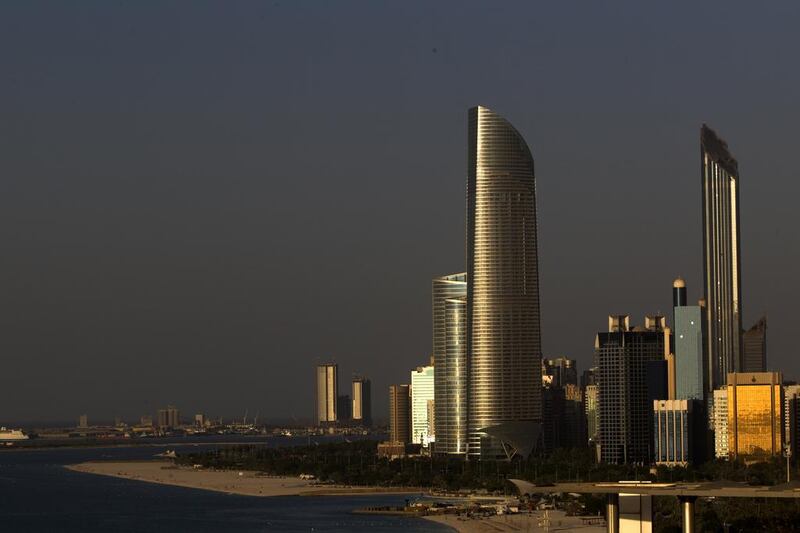Abu Dhabi’s economy should grow at 4 to 5 per cent a year through 2015 amid stable oil prices and heavy government spending on major projects, Fitch Ratings said in a report which affirmed the emirate’s AA rating with a stable outlook.
Fitch cited spillover from Dubai’s economy, a reduction in banks’ non-performing loans and higher sovereign assets as further reasons for keeping the ratings on Abu Dhabi as they are.
Fitch’s GDP forecast compares with a prediction by the IMF that the economy of the UAE as a whole would grow 3.9 per cent this year.
It noted that the emirate’s external sovereign balance sheet is the third strongest of all countries rated by Fitch, after Luxembourg and Kuwait. Abu Dhabi’s sovereign foreign assets are estimated to have jumped to 182 per cent of GDP at the end of 2013 from 153 per cent a year earlier, Fitch said in the report, which was issued late on Friday.
The AA rating puts Abu Dhabi in the same basket as New Zealand, Belgium and Kuwait and a notch lower than AAA countries such as Canada and the United States.
Factors that could propel Abu Dhabi into the top tier are reducing the economy’s dependence on oil and improving transparency on key data such as its external balance sheet, Fitch said. And while GDP per capita is among the highest of all Fitch-rated sovereigns, the agency said human development indicators are below the median.
“The economy is heavily dependent on oil, which accounts for around 50 per cent of GDP and the bulk of fiscal and external revenues,” analysts led by London-based Paul Gamble said in the report. “However, oil production per capita is one of the highest in the world and supports high GDP per capita. Proven reserves are large, production costs are low and production capacity and downstream facilities are being expanded.”
Fitch forecasts Brent crude to average US$100 a barrel this year and next. The agency noted that Abu Dhabi could tolerate much lower prices over the forecast period without facing “undue pressure” on its rating. However, it said that a sustained period of sharply lower oil prices could lead to negative rating action.
On Friday, Brent crude dropped 0.45 per cent to $109.85 a barrel on London’s Futures Europe Exchange.
mkassem@thenational.ae





